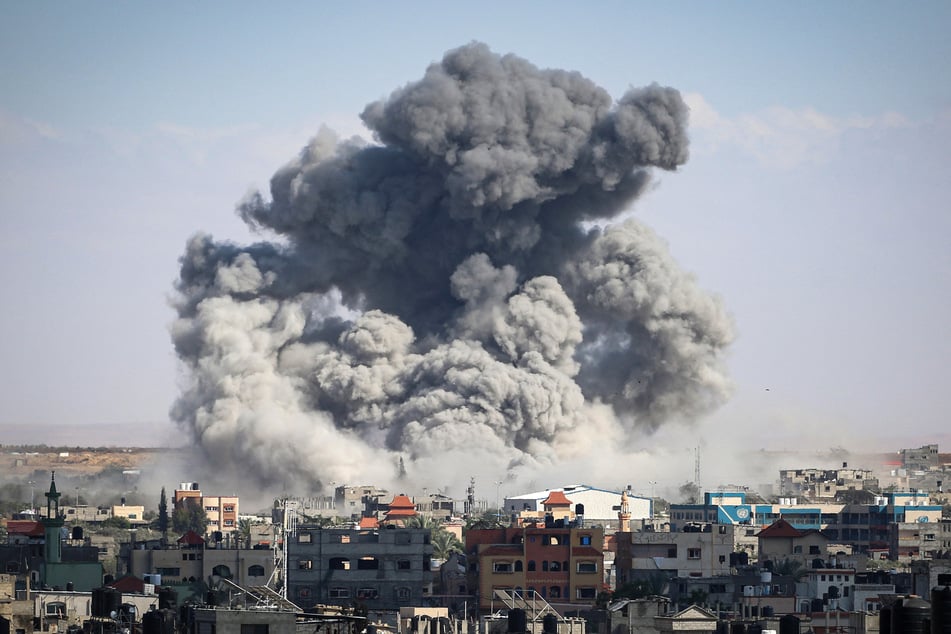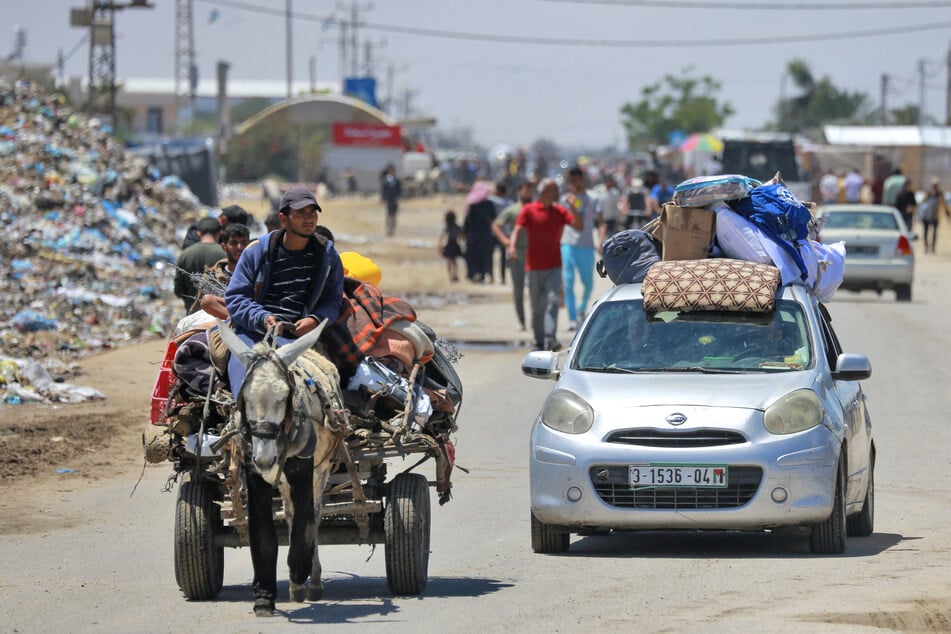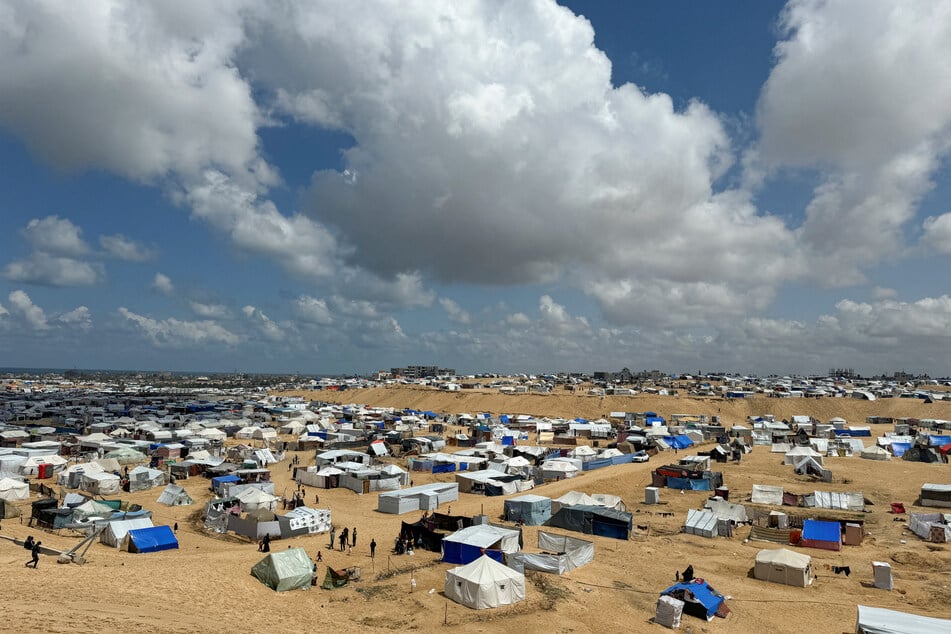Israel starts bombing Rafah despite Hamas claims it has accepted ceasefire agreement
Rafah, Gaza - Israel carried out overnight strikes on Rafah in the south of Gaza, just hours after the Palestinian militant group Hamas said it had accepted a ceasefire proposal put forward by Egypt and Qatar.

After having vowed for weeks to push into the southern border town in defiance of global opposition, Israel called on Monday for Palestinians in eastern Rafah to leave for an "expanded humanitarian area" ahead of a ground incursion.
An AFP correspondent in the city reported heavy bombardment throughout the night, while the Kuwaiti hospital there said Tuesday in an updated toll that 11 people had been killed and dozens of others injured in Israeli strikes.
Hamas had said Monday evening that it had informed mediators Egypt and Qatar of its "approval of their proposal regarding a ceasefire" in the seven-month-old war, prompting cheering crowds to take to the streets of Rafah.
Israeli Prime Minister Benjamin Netanyahu's office said the proposal "is far from Israel's essential demands", but the government would send negotiators for talks "to exhaust the potential for arriving at an agreement".
In the meantime, it added, "Israel is continuing the operation in Rafah to exert military pressure on Hamas in order to advance the release of our hostages and the other objectives of the war".
Close Israeli ally the US said it was "reviewing" the Hamas response and urged its ally not to go forward with the full-scale assault.
Israel and Hamas wrangle over duration of ceasefire

Hamas member Khalil al-Hayya told Al Jazeera that the proposal agreed to by Hamas involved a three-phase truce.
He said it includes a complete Israeli withdrawal from Gaza, the return of Palestinians displaced by the war and a hostage-prisoner exchange, with the goal of a "permanent ceasefire".
Qatar said that it was sending a delegation to Cairo on Tuesday morning to resume negotiations in the "hope that the talks will culminate in reaching an agreement for an immediate and permanent ceasefire in the Gaza strip."
A senior Hamas official, speaking to AFP on condition of anonymity, said Israel must now decide whether it accepts or "obstructs" a truce.
Rafah invasion would be "intolerable"

International alarm has been steadily building about the consequences of an Israeli ground invasion of Rafah, where some 1.2 million people are sheltering.
Israel's military in a statement urged those in eastern Rafah to head for the "expanded humanitarian area" at Al-Mawasi on the coast.
But aid groups said Al-Mawasi was nowhere near ready for such an influx.
Egypt, the main conduit for aid trucks into Gaza, has been a key mediator in truce efforts and has resolutely opposed any mass displacement of refugees from the strip into its territory.
An Israeli incursion into the city would be "intolerable," UN Secretary-General António Guterres said Monday, calling on Israel and Hamas "to go an extra mile" to reach a ceasefire deal.
Egypt's foreign ministry warned of "grave humanitarian risks" for the more than one million Gazans sheltering there and urged Israel to "exercise the utmost restraint".
Jordanian King Abdullah II asked US President Joe Biden in talks Monday to intervene to stop a "new massacre" in Rafah.
In a conversation with Netanyahu on Monday, Biden restated "his clear position" opposing an invasion of the city, the White House said.
Families of hostages abducted to Gaza on October 7 also demanded an agreement, with the Hostage Families and Missing Families Forum saying that "now is the time for all that are involved to fulfil their commitment and turn this opportunity into a deal for the return of all the hostages".
Cover photo: AFP

